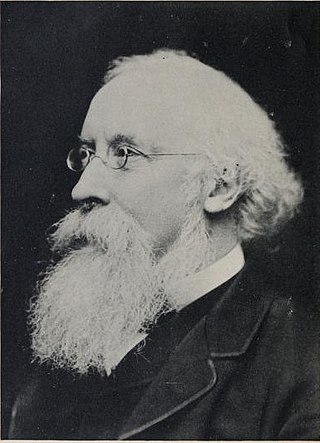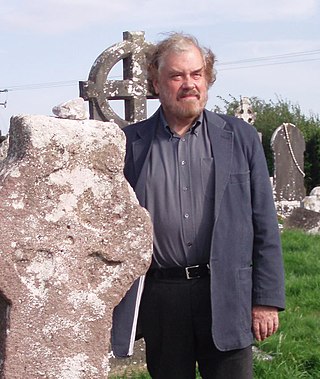
The Celtic languages are a branch of the Indo-European language family, descended from Proto-Celtic. The term "Celtic" was first used to describe this language group by Edward Lhuyd in 1707, following Paul-Yves Pezron, who made the explicit link between the Celts described by classical writers and the Welsh and Breton languages.

The Celts or Celtic peoples were a collection of Indo-European peoples in Europe and Anatolia, identified by their use of Celtic languages and other cultural similarities. Major Celtic groups included the Gauls; the Celtiberians and Gallaeci of Iberia; the Britons, Picts, and Gaels of Britain and Ireland; the Boii; and the Galatians. The relation between ethnicity, language and culture in the Celtic world is unclear and debated; for example over the ways in which the Iron Age people of Britain and Ireland should be called Celts. In current scholarship, 'Celt' primarily refers to 'speakers of Celtic languages' rather than to a single ethnic group.

Whitley Stokes, CSI, CIE, FBA was an Irish lawyer and Celtic scholar.

The Gaelic revival was the late-nineteenth-century national revival of interest in the Irish language and Irish Gaelic culture. Irish had diminished as a spoken tongue, remaining the main daily language only in isolated rural areas, with English having become the dominant language in the majority of Ireland.
The Irish Literary Revival was a flowering of Irish literary talent in the late 19th and early 20th century. It includes works of poetry, music, art, and literature.

Celtic studies or Celtology is the academic discipline occupied with the study of any sort of cultural output relating to the Celtic-speaking peoples. This ranges from linguistics, literature and art history, archaeology and history, the focus lying on the study of the various Celtic languages, living and extinct. The primary areas of focus are the six Celtic languages currently in use: Irish, Scottish Gaelic, Manx, Welsh, Cornish, and Breton.

Eric Pratt Hamp was an American linguist widely respected as a leading authority on Indo-European linguistics, with particular interests in Celtic languages and Albanian. Unlike many Indo-Europeanists, who work entirely on the basis of written materials, he conducted extensive fieldwork on lesser-known Indo-European languages and dialects, such as Albanian, Arbëresh and Arvanitika; Breton; Welsh; Irish; Resian and Scots Gaelic.

Kuno Meyer was a German scholar, distinguished in the field of Celtic philology and literature. His pro-German stance at the start of World War I in the United States was a source of controversy. His brother was the distinguished classical scholar, Eduard Meyer.

Peter Berresford Ellis is a British historian, literary biographer, and novelist who has published over 98 books to date either under his own name or his pseudonyms Peter Tremayne and Peter MacAlan. He has also published 100 short stories. Under Peter Tremayne, he is the author of the international bestselling Sister Fidelma historical mystery series. His work has appeared in 25 languages.
Alan Strode Campbell Ross was a British academic specialising in linguistics. He is best remembered as the ultimate source and inspiration for author Nancy Mitford's "U and non-U" forms of behaviour and language usage as class indicators.

Edgar Ghislain Charles Polomé was a Belgian-American philologist and religious studies scholar. He specialized in Germanic and Indo-European studies and was active at the University of Texas at Austin for much of his career.

The Zeitschrift für celtische Philologie is an academic journal of Celtic studies, which was established in 1897 by the German scholars Kuno Meyer and Ludwig Christian Stern. It was the first journal devoted exclusively to Celtic languages and literature and is the oldest significant journal of Celtic studies still in existence today. The emphasis is on (early) Irish language and literature and Continental Celtic languages, but other aspects of Celtic philology and literature also receive attention.
John Thomas Koch is an American academic, historian, and linguist who specializes in Celtic studies, especially prehistory, and the early Middle Ages. He is the editor of the five-volume Celtic Culture: A Historical Encyclopedia. He is perhaps best known as the leading proponent of the Celtic from the West hypothesis.

The Gaelic Journal was a periodical publication "exclusively devoted to the preservation and cultivation of the Irish Language". According to Tomas O Flannghaile it was "the first journal devoted to the living Irish language". It has been described by the historian Donnchadh Ó Corráin as "the first important bilingual Irish periodical". An early manifestation of the Gaelic revival, it was established with the help of Douglas Hyde, and first published in 1882, by the Gaelic Union, and from 1893 by Conradh na Gaeilge. After some initial irregularities, the journal was published monthly until 1909.

Tadhg Ó Donnchadha was an Irish writer, poet, editor, translator and a prominent member of the Gaelic League and the Gaelic Athletic Association. He was editor of Irisleabhar na Gaedhilge, Professor of Irish in University College Cork and Dean of the Faculty of Celtic Studies.
An Gael is a quarterly literary magazine in the Irish language, published in the United States on behalf of the Philo-Celtic Society. It describes itself as international and was established in 2009 by Séamas Ó Neachtain, who is its editor. The magazine is based in New York City.
David Michael Benjamin Denison is a British linguist whose work focuses on the history of the English language.

Pól Ó Muiri is an Irish journalist, poet, and Irish-language editor of The Irish Times.

Elizabeth Catherine "Ella" Carmichael, also known after 1906 as Mrs. W. J. Watson, was a Scottish editor and scholar, remembered as a supporter of the Scottish Gaelic language.











